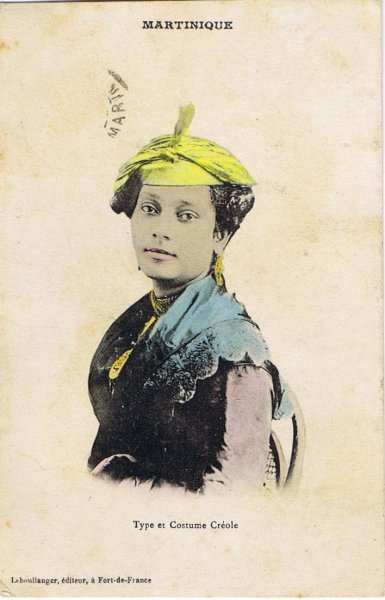The French Colonial Empire includes all the colonies, protectorates and overseas territories, which were under the tutelage, colonized or governed by France. This action translates into the extension of the sovereignty of the hexagon on different countries, for economic and political purposes. It lasted for about 5 centuries, more precisely 428 years. This hold began in the 16th century and ended in the 20th century. It also contributed to the establishment of Free France. We will discover through a few lines the concrete facts and the economic interests linked to the colonies.
The French Colonial Empire: what is it?
Colonization means the annexation and trusteeship of a territory, generally underpopulated and underdeveloped, by a foreign force to exploit its resources. It is one of the undeniable actions that the history of the world has known, and has been developing throughout Europe since the 15th century. France has also embarked on this conquest. Its colonial empire differs from that of other powers thanks to its colonizing approach, which places it at the end of the 19th century in second place among colonizers, after England.
The different territories of the French colonial empire
Avec 12 millions de km2 et environ 70 millions d’habitants en 1939, l’Empire colonial français vient après celui du Royaume-Uni, qui colonise le plus grand territoire au monde. Il se trouve d’ailleurs dans tous les continents ainsi que tous les océans. De tradition, les empires coloniaux français se divisent chronologiquement en deux.
The first colonial space
At the beginning, the colonies were not yet part of the priorities of the French state. In 1534, French settlers came to Canada to contribute to the fishing industry. They also wanted to discover precious metals on the spot.
In the 17th century, France went even further in its commercial strategies and settled in some islands of the West Indies, notably Guadeloupe, Martinique and Santo Domingo. Its objective was to expand its economic system through the slave trade and slavery for the production of sugar cane and tobacco.
At the same time, its hold also extended to the Mascarene Islands, some trading posts in India and part of East Africa (Senegal). It flourished with sugar and coffee exports from Santo Domingo, Martinique and Guadeloupe.
But unfortunately, this first colonial expansion was not successful and collapsed in the late 1780s. The annexation of foreign countries by France was not very persuasive, despite the booming economic situation in the West Indies for a while.

The Second Colonial Space
From 1815, the Second French Colonial Empire was formed and spread over many continents. It essentially included different regions of Africa, resulting from the former trading posts, Asia and Oceania. This hold became the second largest empire between the second half of the 19th century and the 20th century. Together with the French metropolis, the areas governed by France reached more than 8.7% of the world’s land mass and were controlled by the French Colonial Forces.
At the present time, it remains in this great colonial empire France overseas, formed by some islands and archipelagos of the Caribbean, the Atlantic Ocean, the Indian Ocean, the Antarctic continent, South Pacific and some countries of South America. In sum, this world power has :
Algeria, Morocco as well as Tunisia in North Africa,
French Equatorial Africa (AEF),
French West Africa (AOF),
Madagascar, Reunion, Saint-Paul, Crozet and the Kerguelen Islands in the Indian Ocean,
French Guiana, Guadeloupe, Martinique, the Antilles and Saint-Pierre-et-Miquelon in the Atlantic Ocean and in America,
New Caledonia, New Hebrides, French Polynesia, Wallis and Futuna in Oceania,
Indochina and trading posts (Pondicherry, Karikal, Mahé, Yanaon and Chandernagor) in Asia.
Whatever their location, each of these territories is a real source of raw materials and also of labor. They also form a market dedicated to metropolitan products. Despite their different statuses, France ensured their administration and developed education, literacy, hygiene, etc. It should be noted that the rights of the natives remained limited.
The forms of administration
France’s conquered lands were governed in different ways. The protectorate was a regime under which territories, such as Tunisia, Morocco and Cambodia, were placed under the tutelage of the Hexagon while retaining their internal autonomy. They had their own government and their own institutions. The French departments, such as Algeria, had a special status.
The countries under the French colonial empire could be completely dominated, politically, economically and culturally. All positions of responsibility were held by French civil servants and soldiers. In some areas, the Metropole imposed a policy of assimilation by making the natives adopt its language, culture and values.
The origins of the concept
France’s approach to the conquest of the world remained confused. The country’s leaders did not even favor colonial expansion. However, it is better to understand their arguments. The French colonists considered themselves at first as bearers of an educational mission. They also took on the task of spreading the Catholic religion. Above all, the Hexagone put forward its economic, commercial and diplomatic interests, while certifying its great power and influence at the world level.
Since its failure in 1870, the French government wanted to restore the country’s strength throughout Europe. Creating a huge colonial empire was the only way to achieve this. This is the reason that incites France to install, in its conquered territories, a system of political, administrative and also military domination. It is about colonization. Various arguments are brought into play.
On the economic level, the colonies are new outlets for the French economy and important sources of raw materials, both diversified and affordable. Demographically and socially, these countries also welcome a multitude of unemployed or poor people to get back on their feet.
France also intends to educate the natives, by imposing its language as an official dialect, by developing a literacy program, which thus causes the progressive disappearance of the indigenous cultures.
The economic interests of the French colonial system
The French colonial policy has had good sides and bad sides. But what is certain is that it has multiple economic, cultural and political advantages for France. The colonized countries were an excellent means of obtaining raw materials, notably cotton, coffee, cocoa, etc. used in French industries. Not to mention the possibility of exporting the surplus to other countries. France then sold its products in the colonies. Colonial trade seems to be a very efficient factor to bring a good vitality to the economy and to enrich the nation.
The colonizer could also exploit the subsoil riches such as gold mines. The invested capital earned more interest. By extending its empire in different countries, the metropolis also allows to show its power towards its neighbors. In fact, several other European countries such as the United Kingdom and Germany also got involved in colonization and owned their empires. The competition for colonies was obvious. In the cultural field, France also brought its culture, learning the language of Molière, the Catholic religion as well as its ideas. These included paternalism and imperialism.






